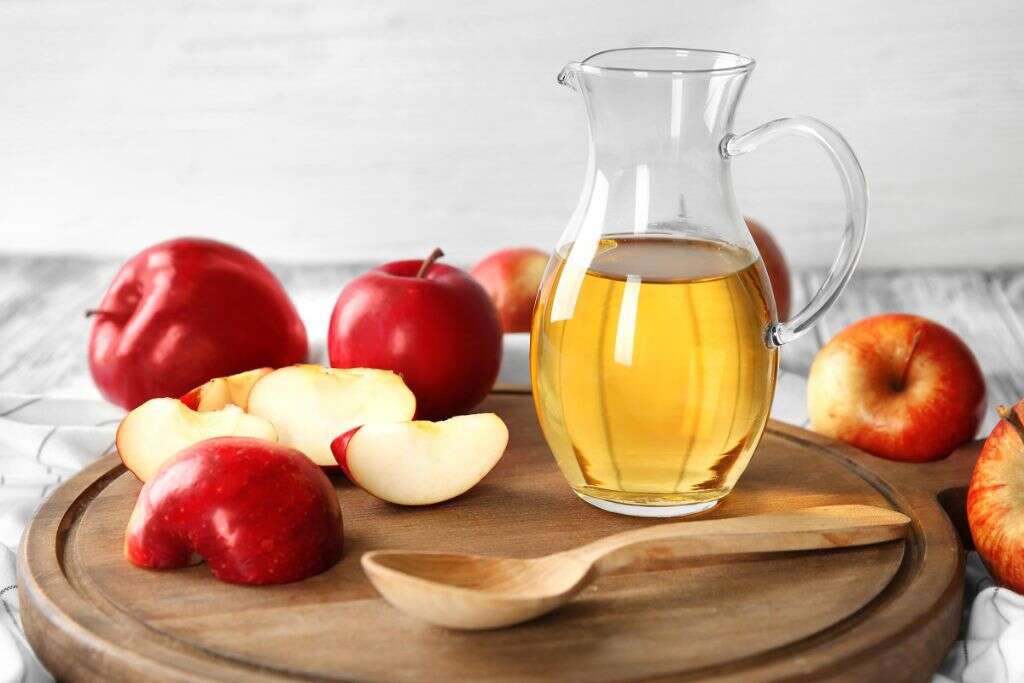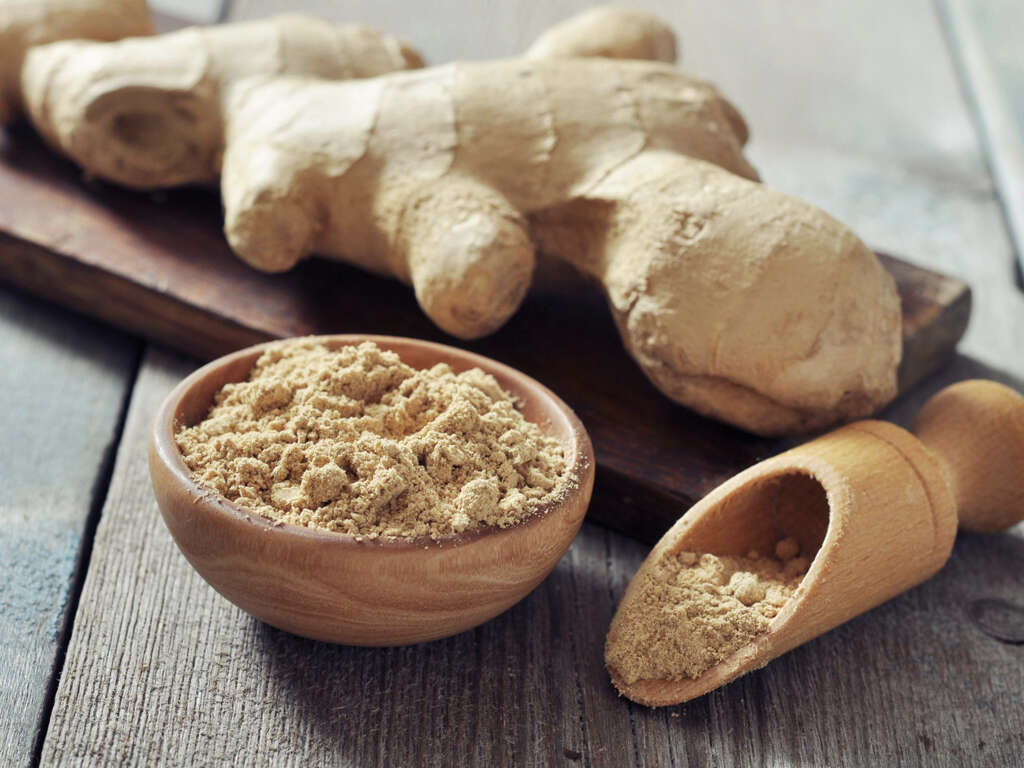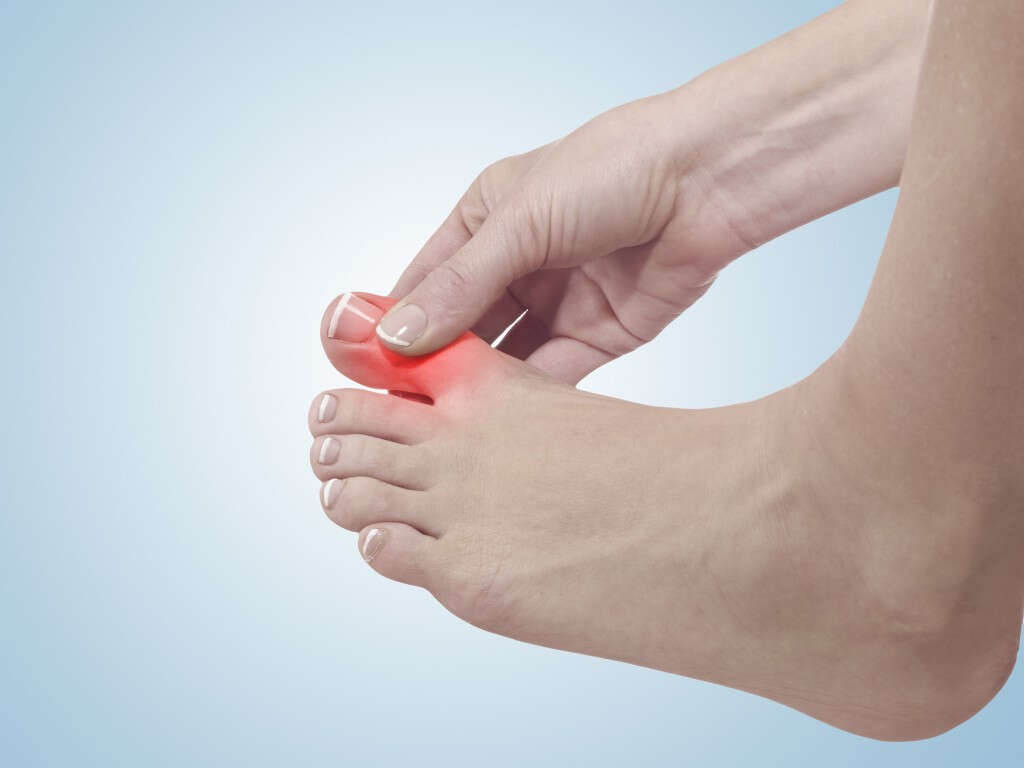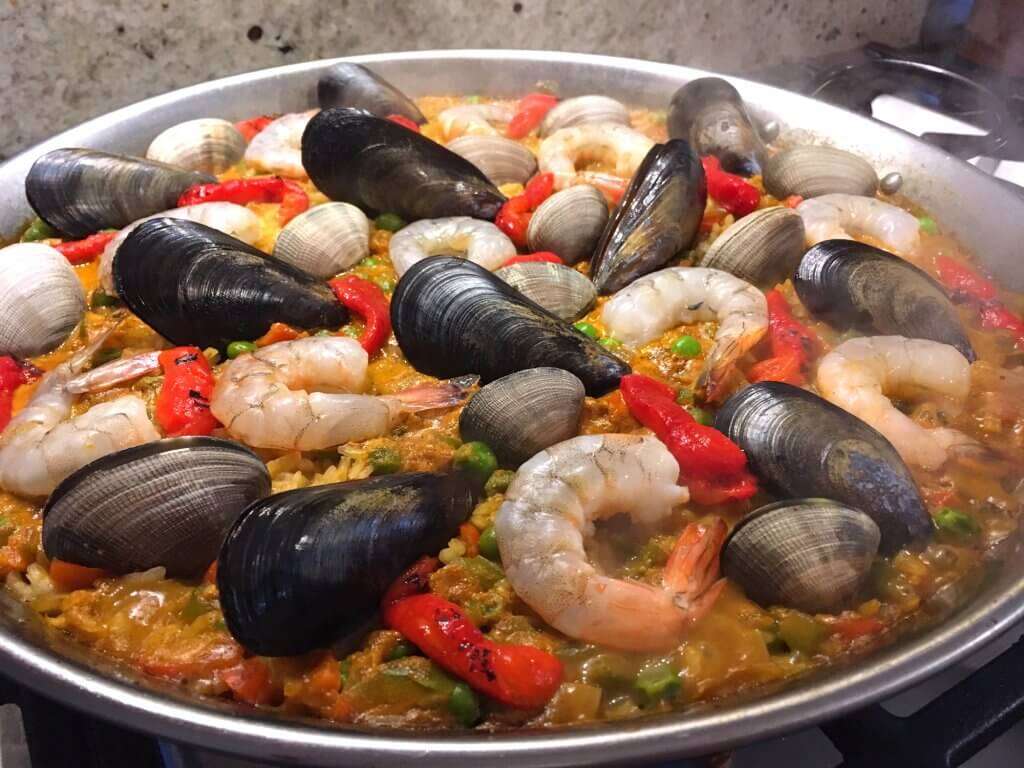10 Foods That Help Gout
Gout is a type of inflammatory arthritis where the affected joint becomes hot, red, swollen, and tender. The pain usually begins rapidly and reaches its peak within 12 hours. In about 50 percent of cases, the joint at the base of the big toe is involved. Gout can also cause other issues such as urate nephropathy, tophi, and kidney stones. Gout occurs when there is a persistently high level of uric acid in the blood due to a combination of factors such as genes, existing comorbidities, and diet. When the levels are high, there is crystallization of uric acid, which deposits in the tendons, joints, and its surrounding tissues leading to joint inflammation, swelling, and pain.
Gout tends to occur in those who regularly drink beer, are overweight, and consume seafood and meat. The diagnosis can be made based on the presence of uric acid crystals in the joints or joint fluid. Gout can be treated with medications such as steroids, nonsteroidal anti-inflammatory drugs (NSAIDs), and colchicine. Once the acute attack has resolved, gout can be further managed with allopurinol or probenecid along with lifestyle changes. Gout is estimated to affect 1 to 2 percent of the Western population at some point in their lives. In recent decades, it has become increasingly common, which may be due to increasing prevalence of metabolic syndrome, dietary changes, and a longer life expectancy.
Dietary causes of gout have been estimated to account for approximately 12 percent of gout cases. There is a strong association between gout and the consumption of seafood, meat, fructose-sweetened drinks, and alcohol. Individuals with gout should also avoid foods that are rich in purines such as shrimp, dried anchovies, seaweed, organ meat, beer yeast, and dried mushrooms. Alcohol is a great risk factor. While there are foods that can cause gout, there are also foods that can help gout. Some of the foods that could be beneficial include the following.

Helpful Gout Food #1: Tofu
Tofu, or bean curd, is a food made by coagulating soy milk and pressing the curds into a solid block. It is part of the traditional cuisine of Southeast Asia and East Asia. In China, it has been consumed for more than 2,000 years. Tofu can have varying degrees of softness and is generally divided into extra firm, firm, soft, or silken. It is low in calories while being high in protein, iron, calcium, and magnesium. It is a popular protein source among vegetarians.
For individuals with gout, tofu can also be a substitute for meat whilst being a gout-friendly food. Since it is low in calories, it can also help with weight loss, which can be beneficial to reduce gout attacks.

Helpful Gout Food #2: Nuts
A nut is a fruit where there is a seed inside a hard shell. Botanically, the term is much more restrictive, but in cuisine, the term is applied to many seeds even when it is not considered to be a true nut. Nuts are an important source of nutrients for humans and animals due to their high fat content, which converts into an energy source. Some examples of nuts include Brazil nuts, almonds, candlenuts, macadamias, chestnuts, and cashews.
Nuts can be a great source of protein for those suffering from gout as they do not contain purines. The fat in nuts is also healthy fat, which ensures satiety and, therefore, helps weight loss.

Helpful Gout Food #3: Vegetables
Vegetables are edible plants and may include the roots, flowers, stems, leaves, fruits, and seeds. They are an important part of human nutrition as they supply dietary fiber, vitamins, minerals, and trace elements. The consumption of vegetables has been linked to decreased incidences of chronic ailments such as cardiovascular disease, stroke, and cancer. Some important nutrients in vegetables include vitamin K, vitamin A, provitamins, and vitamin B6.
It has been found that men who consume at least 1,500 mg of vitamin C daily have a 45 percent lower risk of gout compared to those who only have 250 mg. Some good sources of vitamin C include broccoli and red peppers.
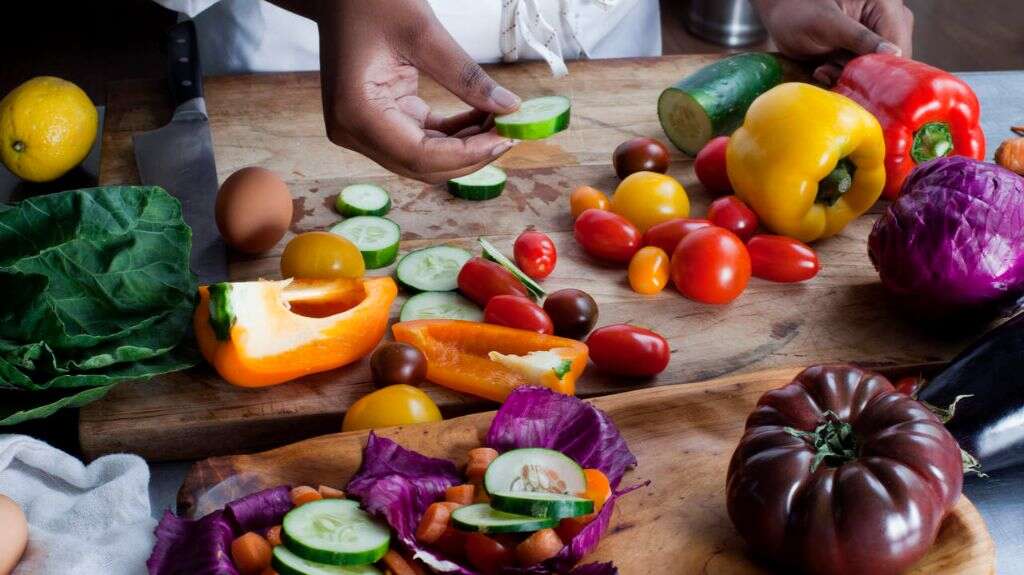
Helpful Gout Food #4: Pineapples
Fruits are seed-bearing structures that may have the means to disperse seeds. Edible fruits are an important source of food as they provide crucial nutrients for both humans and animals. Fresh fruits are usually high in fiber, water, and vitamin C. The regular consumption of fruits has been associated with decreased risks of chronic disease and functional declines due to aging.
While all fruits are generally good for health, there are some fruits that have an additional benefit for individuals with gout. Pineapples contain bromelain, which is an enzyme that can help decrease pain and inflammation. It has been reported that it can help with the pain, especially when there is a gout attack.
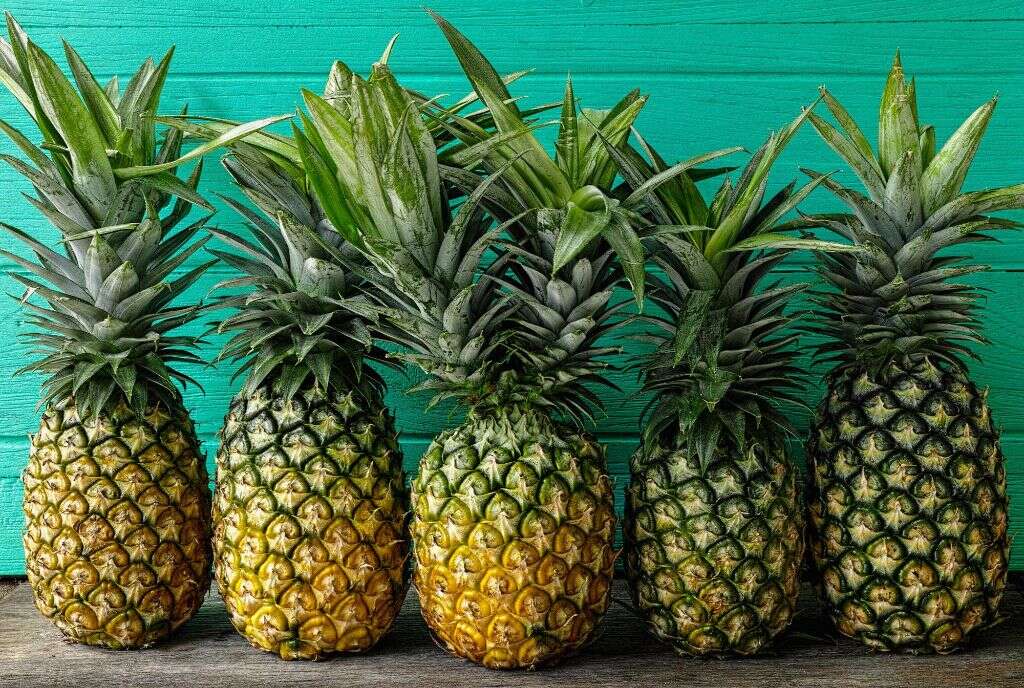
Helpful Gout Food #5: Omega-3 Fatty Acids
Omega-3 fatty acids are polyunsaturated fatty acids that play an important role in human physiology. There are 3 types of omega-3 fatty acids: alpha linolenic acid (ALA), docosahexaenoic acid (DHA), and eicosapentaenoic acid (EPA). ALA can be found in plant oils (walnuts, flaxseed oil, hemp oil) while DHA and EPA are mainly found in fish, fish oils, krill oil, and squid oil.
While omega-3 fatty acids are beneficial for those with gout as they are powerful anti-inflammatories, the consumption of mackerel and salmon should be limited to 4 to 6 ounces per day. There are also other sources of omega-3 fatty acids such as a supplement or from flaxseeds.
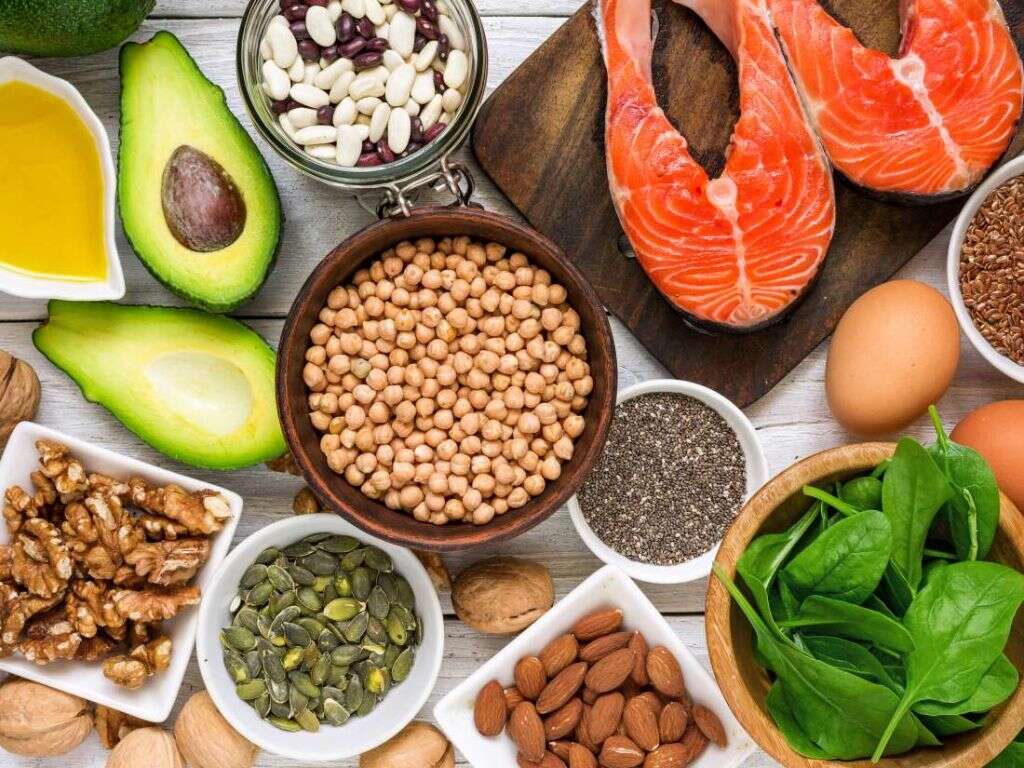
Helpful Gout Food #6: Cherries
A cherry is a stone fruit from the genus Prunus. Cherries consist of water, carbohydrates, and negligible amounts of protein and fat. They also provide moderate amounts of dietary fiber, vitamin C, vitamin A, and beta carotene. Sour cherries have more nutrients compared to their sweet counterpart.
Cherries can be beneficial for individuals with gout as they contain anthocyanins, which have anti-inflammatory properties. In one small study, the participants took a tablespoon of cherry juice concentrate twice a day and experienced more than 50 percent reduction in gout attacks. From various research, it has been suggested that cherries can help reduce the levels of uric acid and decrease inflammation.
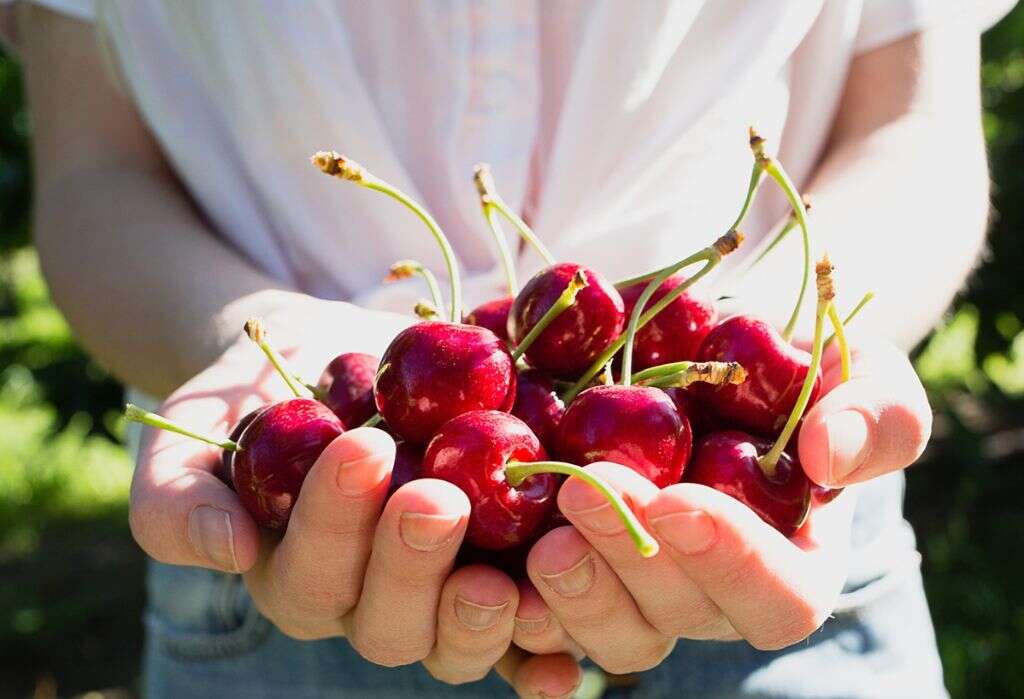
Helpful Gout Food #7: Low-Fat Dairy Products
Researchers have reported that low-fat dairy products can help increase the excretion of uric acid in the urine. One study found that individuals who consumed a serving or more of low-fat yogurt or milk had less uric acid in their blood. This may be attributed to the low purine and high protein content in dairy products.
Dairy proteins also contain lactalbumin and casein that help increase uric acid secretion. Choose dairy products that are labeled as low-fat or skim such as 1 percent milk.

Helpful Gout Food #8: Coffee
Coffee is a drink made from roasted coffee beans. It is slightly acidic, bitter, and has a stimulating effect due to its caffeine content. Clinical trials have reported that coffee consumption is generally safe and is more likely to improve health than cause harm at 3 to 4 cups per day.
Based on a Canadian study with 46,000 participants, it has been reported that coffee consumption may decrease the risk of gout. In the trial, the more coffee consumed led to a larger decline in uric acid levels. The risk of gout was also found to be lower among those who drank 4 to 5 cups of coffee a day.

Helpful Gout Food #9: Whole Grains
Whole grains refer to grains that still contain the bran, endosperm, and germ compared to refined grains that have been stripped of these structures to improve the taste, appearance, and shelf-life. The consumption of whole grains has been associated with decreased risk of various diseases. Whole grains contain more nutrients and fiber compared to refined grains.
Whole grains are slower to digest and help prevent the blood sugar from spiking. This means that they have a much lower glycemic index and maintain satiety for a much longer time. This can prevent excessive consumption of calories and promote weight loss, which can be greatly beneficial for those with gout.
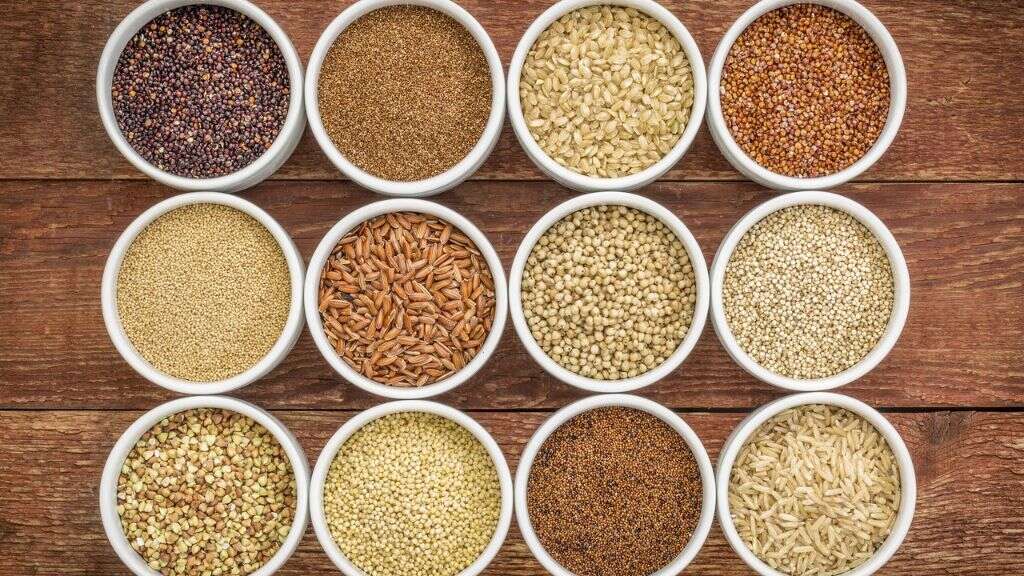
Helpful Gout Food #10: Apple Cider Vinegar
Apple cider vinegar is produced from fermentation of juice from crushed and pressed apples. Apple cider vinegar has been used in folk or traditional medicine to prevent infection, heal wounds, treat diabetes, and more. Apple cider vinegar contain acetic acid, mineral salts, potassium, vitamins, and other healthy organic acids. It also contains polyphenols, which are antioxidants.
Some research has suggested that it is beneficial for those with hypertension and diabetes. In gout, apple cider vinegar may help reduce inflammation and promote weight loss. This can lead to a decrease in the uric acid levels. Researchers have reported that those who lost a significant amount of weight were four times more likely to have lower uric acid levels compared to those who maintained their weight.
